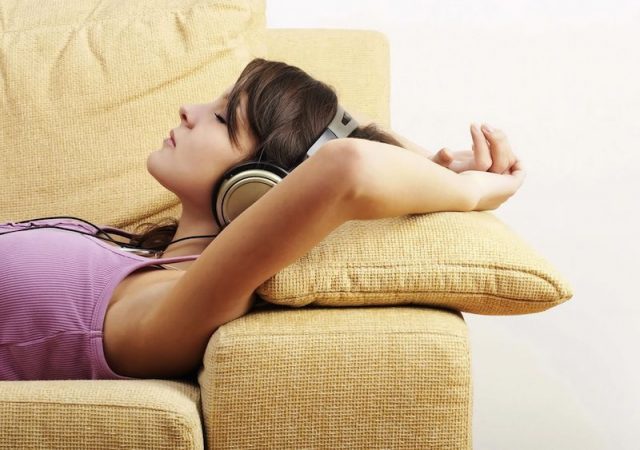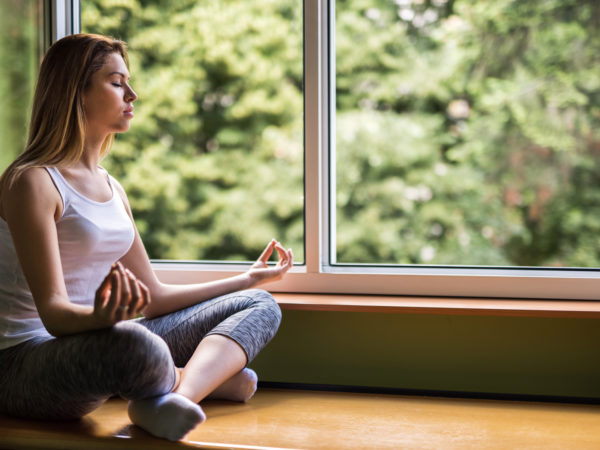Restlessness, agitation, stress, excitement and a lot of insecurity, this is anxiety, that mental state capable of blocking us even in the most banal moments. We all suffer anxiety at one time or another, as it is still a natural adaptation mechanism. When we are able to control it, it can be of great help, since it will allow us to maintain our concentration and alertness to face any challenge that lies ahead. But what happens when our anxiety overflows?
The feeling of helplessness paralyzes the subject who suffers it and interferes with the normal daily activities of a person. Here, we want to teach you how to control your anxiety in these types of situations, we have compiled the best relaxation exercises for anxiety. Recovering calm, tranquility and tranquility, you can feel safe and face your daily life in a normal way.
Relaxation exercises to reduce anxiety
With relaxation techniques, you will be able to suppress both the muscular and mental tension that blocks you. Anxiety, as we have previously mentioned, generally occurs due to prolonged situations of stress, so it is essential to regain calm and inner peace in order to continue with your day to day.
The goal of relaxation exercises is basically to restore emotional and physical stability to overcome the period of intense anxiety. These exercises are suitable for everyone, except if you are a person who has certain medical restrictions, in that case you should consult with the doctor who takes your treatment. Relaxation techniques are perfect for anyone suffering from tension, stress or anxiety and living with symptoms such as insomnia or sleep disorder, muscle tension and pain, tachycardia or nervousness.

Breathing control
All relaxation exercises to combat anxiety work through breathing, so the most important thing to face anxiety attacks is to control it. Shallow, labored breathing, sighing, repeated yawning, or hyperventilation are common symptoms in times of anxiety. It is time to apply a simple exercise to control your breathing:
- Sit comfortably and relaxed, with your back straight.
- Breathe in through your nose instead of through your mouth. Take a good amount of air.
- Exhale deeply, breathing gently.
- Notice how your abdomen widens when you breathe in and how it gets smaller on exsalation.
- Do the exercise a few times in a row, taking a deep breath in through your nose and gently letting the air out.
Diaphragmatic breathing
With this relaxation exercise for anxiety, you will also be able to control your breathing and restore stability and balance to your body and mind. To carry it out, you will need to be located in a quiet and quiet place. Follow the next steps:
- Put yourself in a comfortable position. Whether lying or sitting, you should relax your muscles as much as you can.
- Put one hand on your chest and the other on your stomach.
- Next, breathe in slowly through your nose, until you notice the swelling of the hand you have placed on your stomach. The hand on the chest should not move. Repeat until you get it, it’s a matter of training.
- When you have done this, hold the air in your stomach for a few seconds.
- Slowly release the air through your mouth. Remember that the chest hand should not move while you feel the stomach hand go back to the starting position. And repeat the movement until you are calm.
Blank mind
When you can control your breathing, it will be time to work your mind to combat anxiety. Although it seems very difficult to achieve, leaving the mind blank is possible. Try to stop your thoughts while doing the breathing exercises, as together it is the best technique to end anxiety:
- While doing the breathing exercise, focus only on catching the air and expelling it. Breathe
Put distance between you and the thoughts that haunt you. We suggest you count the exhalations slowly, at the rate you perform them. Occupy your mind with just those numbers.
Try to get to number 5, both in the head and in the breath. - If in the meantime a thought has deconcentrated you and settled in your head, you should set the counter to 0 and start the exercise again.
- Repeat until you can do the 5 exhalations without thinking about anything else, then you can increase the number of breaths to leave your mind blank for longer. This is an exercise that requires perseverance to master your thoughts.
Other relaxation techniques
If relaxation exercises for anxiety have not worked, you may want to see a specialist stress and anxiety psychologist. He will give you the correct guidelines to regain calm, security in yourself or self-esteem and you will learn to manage stress with it. However, we want to propose other relaxation techniques that can help you overcome your crises.
- Take a deep breath every hour. To stop and regain strength is not to waste time, it is to invest in your own time and take advantage of it.
- Do neck stretches (sideways, up, and down) and do rotational exercises.
- Close your eyes for 5 seconds. Repeat the exercise about 5 times. The sense? Relax the face.
- Massage your eyes and temple lightly. You’ll feel better.
- If you are at home, in the face of anxiety, wash your feet with hot water and salt. It is a good method of body relaxation.
- Eat well, hydrate more and exercise moderately.
- Try to decrease the intensity of light or sound, so as not to overstimulate your senses. It is a moment of relaxation.
- Take the time to be with you, enjoy every moment and do activities that satisfy you.
- Sleep 8 hours and rest deeply. It will revitalize you.
- Identify which parts of your body you tense the most during your anxiety attacks and work with them, stretching the muscles and loosening the areas.
- Love yourself more and think more about yourself, about what makes you happy. Everything else has a solution.
- Think or write 10 thanks a day. It is an exercise that will help you connect with the most positive part of you. You will relax.
- Try to keep your mind distracted, away from the problems that block you. When you have enough courage, it will be time to face them.
Remember that anxiety is a natural state that everyone, at one time or another, must go through. Of course, you must work yourself, your nerves and your self-esteem to prevent them from becoming continuous crises that do not let you move forward or enjoy life. Think that there are professionals willing to help you if you do not succeed on your own, but relaxation exercises will help you reduce the symptoms of your anxiety. Test it!
You may like also to read https://netcrunch.co.uk/




